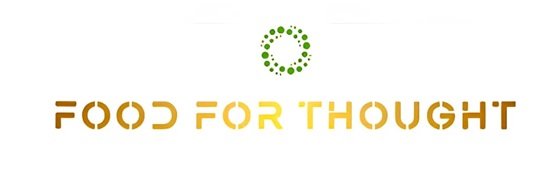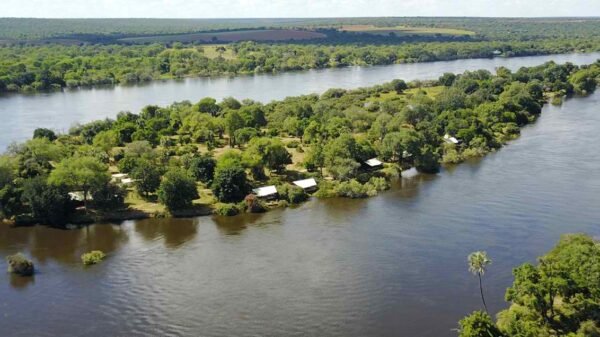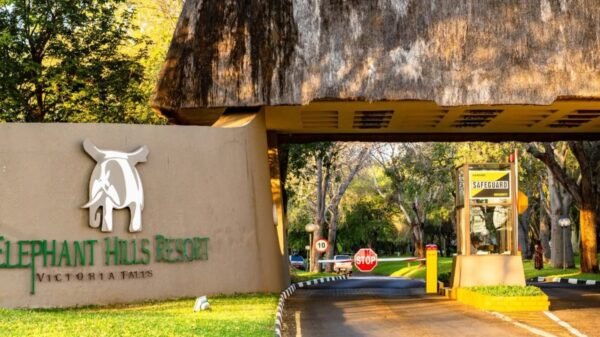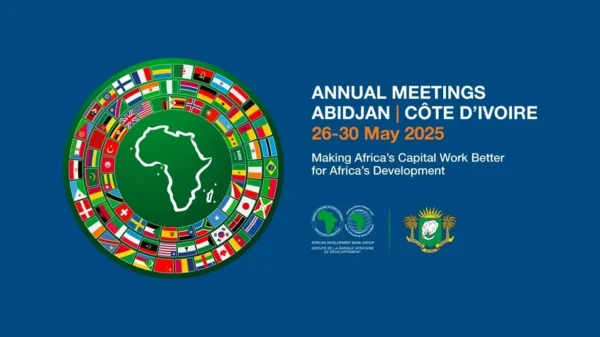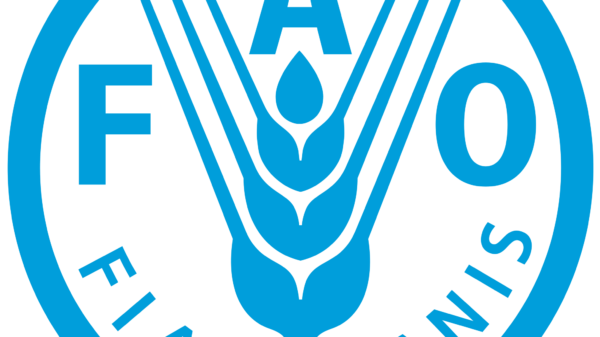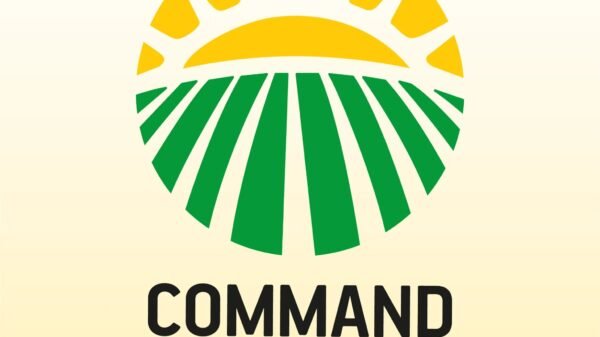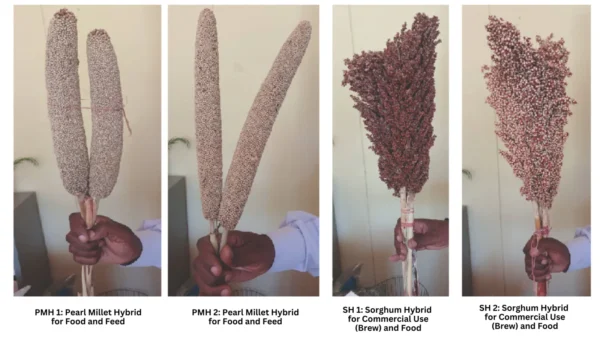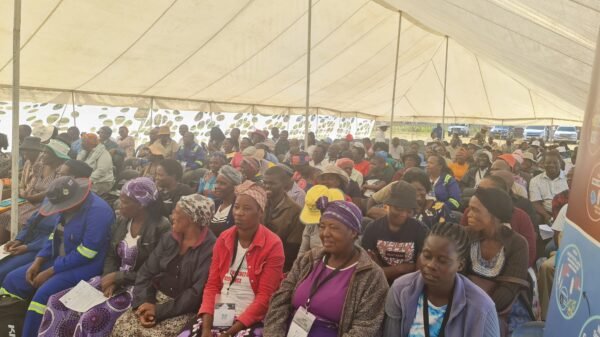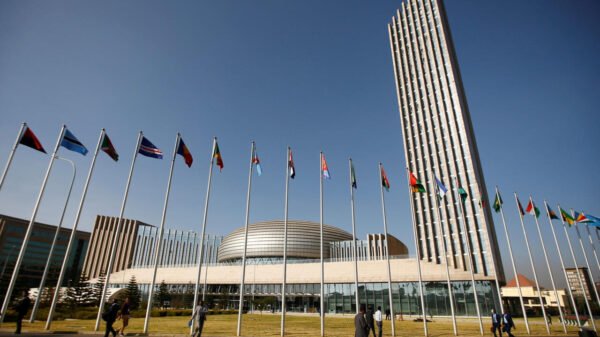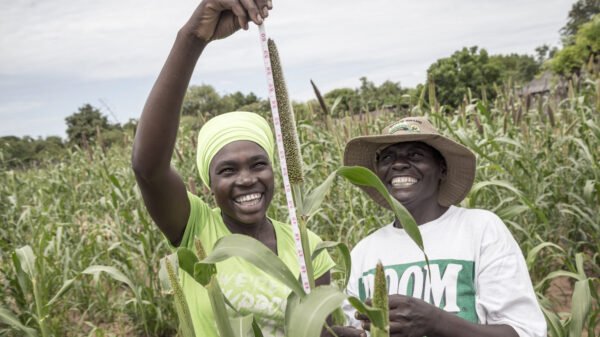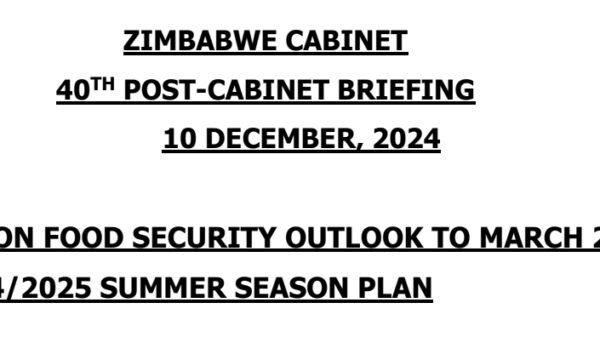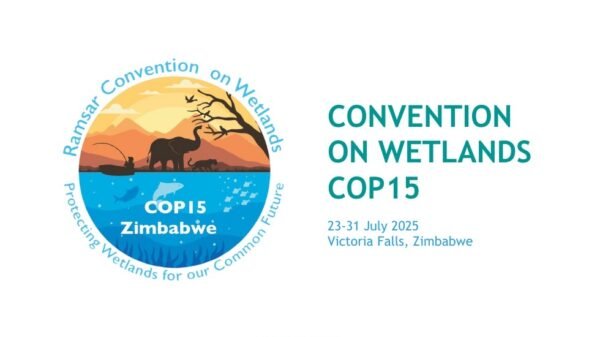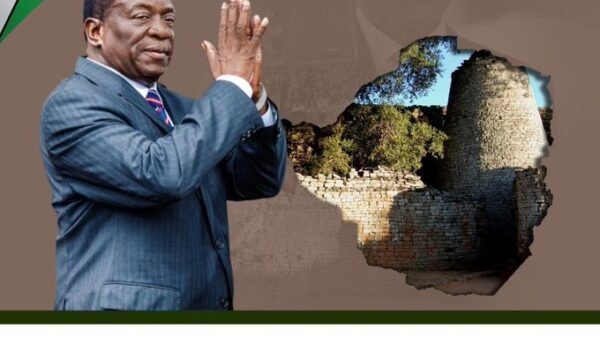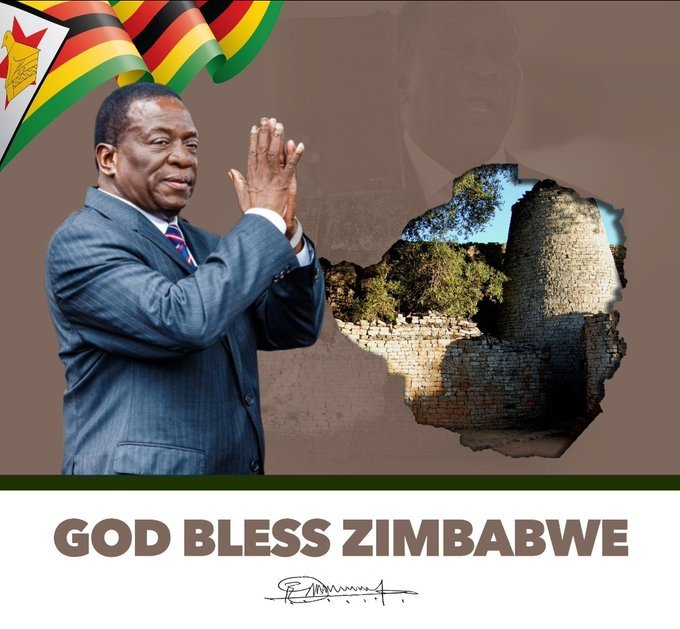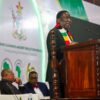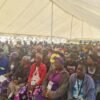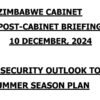
President Emmerson Mnangagwa has squandered a glorious opportunity to tackle corruption-induced poverty.
By Brezh Malaba
WELCOME to 2025, folks. I hope you’ve had restful holidays, although for most people in Zimbabwe this would have been impossible.
What is my prognosis for the New Year? Well, if you are looking for convenient lies, kindly stop reading now and search elsewhere.
The ultimate measure of a government’s economic policy is quality of life. Anything else is smoke and mirrors.
When a regime makes it near-impossible for the average citizen to buy a loaf of bread, eat three square meals a day, afford decent shelter, healthcare and education, it has failed to govern and has no legitimate business clinging on to political power.
The few workers who still hold down a formal job in Zimbabwe have been reduced to paupers. As for the poverty-stricken majority in the informal sector who must eke out a living on the tough streets or at the mercy of the climate crisis, life is getting more unbearable by the day.
Budgeting for misery
The 2025 National Budget is a good starting point for anyone serious about understanding the Zimbabwean government’s strange priorities. Amid devastating hunger, poverty and unemployment, the authorities are pronouncing a Happy New Year by introducing a raft of painful taxes on 1 January 2025. How uncaring can you get?
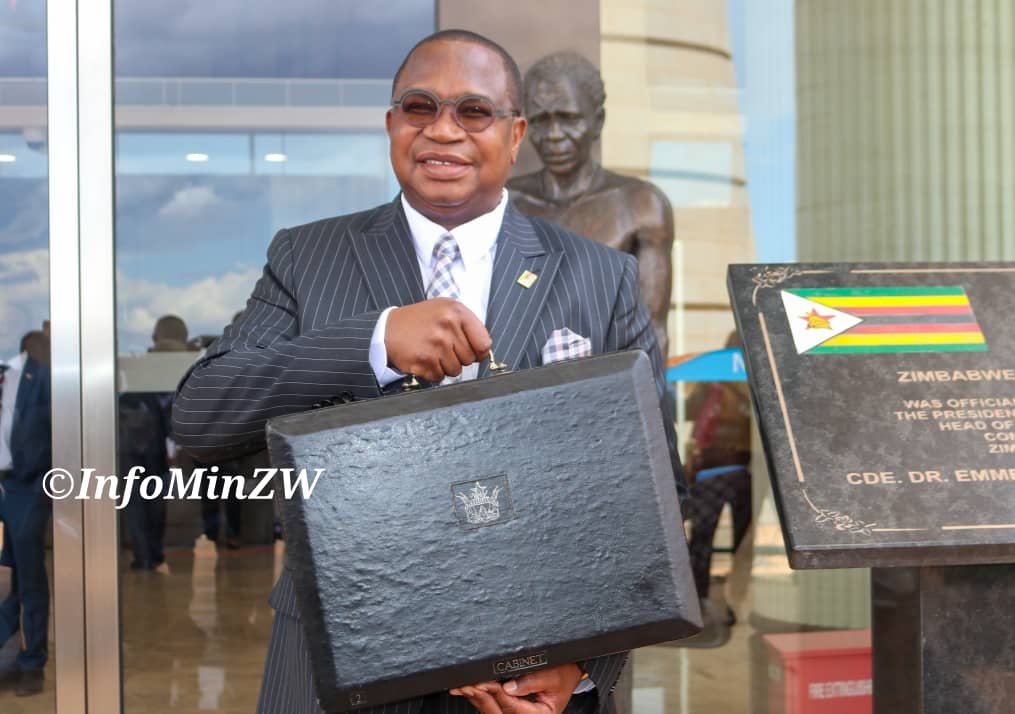
Finance minister Mthuli Ncube poses for the cameras before stepping into Parliament for his budget presentation. Picture credit: Information ministry.
A budget is the most important policy instrument of a government. It is a qualitative and quantitative expression of state planning for a fiscal year. Although it is fundamentally a political statement, a budget reflects the economic priorities of those in power. By inflicting an ever-growing list of cruel taxes, the political elites are communicating a very unsettling message to the wretched povo: We will milk your pockets until the end of time and there is nothing you can do about it.
The 2025 budget consolidated Finance minister Mthuli Ncube’s growing reputation as a sleek-talking merchant of mass impoverishment. He may resort to the high-flown language of sophisticated algorithms to make himself sound like a well-meaning technocrat, but there are very few people who disagree with the court of public opinion which has since arrived at the conclusion that the professor and his boss, President Emmerson Mnangagwa, have vandalised people’s quality of life.
Chemist Siziba — a war veteran and pioneering businessman in the mobile telecoms sector who sadly passed away in 2024 (may his soul rest in peace) — devised a simple but amusing yardstick for measuring the effectiveness of anyone who claims to be a leader:”You can speak all the high-sounding English you want, but I have a question for you: Can you make a simple chair or a simple table which can be used by the people?” Mnangagwa and his team have failed Bra Chem’s leadership test.
The budget failed to address the three pressing issues which are screaming out for attention: poverty, currency crisis and structural infirmities linked to corruption, bad governance and policy inconsistencies.
But the self-conceited rulers should never forget that it is crucial to guard against the arrogance of power. In the Zimbabwean polity, while it is the exclusive jurisdiction of the ruling elite to determine the direction which the national budget takes, the government dare not ignore the concerns of the masses.
If legitimate political authority is derived from the consent of the governed, the national budget must, of essence, be an eloquent elucidation of the national interest. This national interest is supposed to transcend the untidy arena of the fleeting politics of the day; it must encompass the higher ideals of statecraft, national survival and prosperity.
Achieving national objectives requires commitment, diligence and practical action. A budget is reduced to a useless piece of paper if the government is not serious about its implementation.
The only way in which a budget’s scope can go beyond the narrow definition of “estimates of revenue and expenditure” is when it is implemented as a public policy imperative and in the national interest. This is where the Zanu PF regime has been found wanting. A good budget is not just a collection of the wishes of the ruling elite; it must be an organic, living and breathing public policy instrument that achieves clear goals and objectives, transforming the lives of citizens for the better.
Whenever minister Ncube gloats about “the resilience of the Zimbabwean economy”, he comes across as insincere to long-suffering citizens who feel insulted by flowery rhetoric meant to hide the ugly underbelly of bad governance.
An entitled executive
On Mnangagwa’s watch, Zimbabwe has regressed to a medieval spectacle. Zanu PF leaders have perfected the art of shooting themselves in the foot.
Corruption is at an all-time high. Politically connected wheeler-dealers are looting with impunity and celebrated as heroic entrepreneurs.
Zimbabwe is finding it difficult to access external financing because of the country’s huge debt overhang. The tendency to blame Western sanctions for the country’s economic collapse is unhelpful.
There was a time when Mnangagwa’s government arrogantly dismissed the misgivings of human rights defenders as the useless ranting of Zimbabwe’s enemies, and got away with it.
Those days have long gone. In recent years, it has become increasingly clear that the world is unrelenting in its demand for the upholding of civil liberties, the rule of law and constitutionalism.
A government that thrives on crude sophistry and clumsy propaganda will always find it difficult to admit its glaring shortcomings.
The stark reality — as 2025 kicks off under a cloud of uncertainty — is that public policy in general and economic management in particular will continue being defined by the Zanu PF government’s unmitigated deception.
Watchdog becomes lapdog
Members of Parliament now resemble lapdogs and not the watchdogs envisaged by the constitution.
In Zimbabwe today, there is no difference between a ruling party MP and a so-called opposition MP. The situation bears a frightening resemblance to Orwell’s Animal Farm: “The creatures outside looked from pig to man, and from man to pig, and from pig to man again; but already it was impossible to say which was which.”
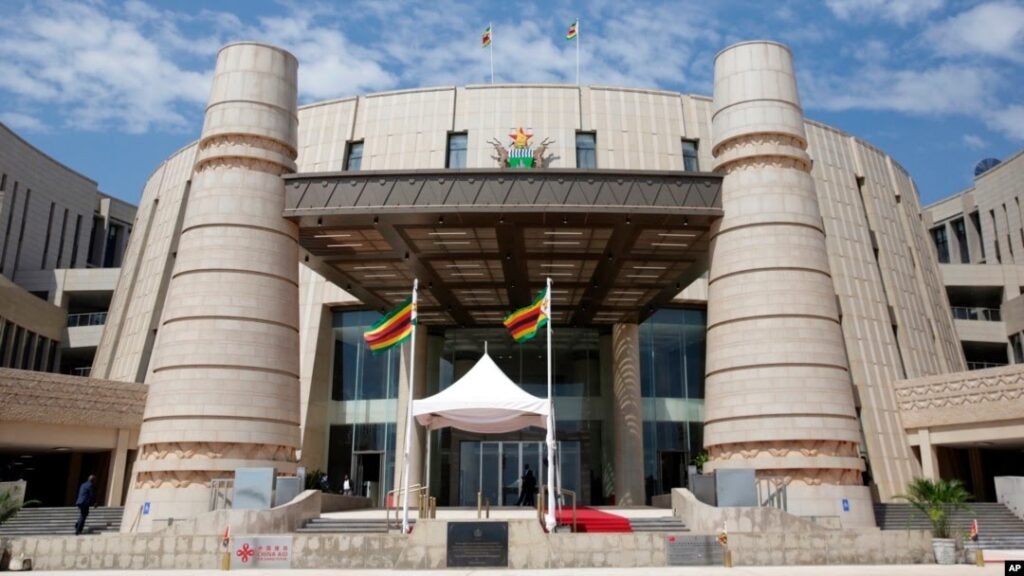
Ivory tower…Parliamentarians are disconnected from the harsh realities of long-suffering citizens and are not fostering democratic accountability.
Legislators are demanding brand new motor vehicles at a time when hospitals have no medicines, malnutrition is ravaging children, residents of Harare are drinking sewage and the drought-stricken people of Bulawayo have surrendered their fate to divine intervention. Their attitude is scandalous: “It is our turn to eat”.
Zimbabwe has become a theatre of the absurd, where the abnormal is normalised and the bizarre is embraced as routine. One minute, you think you have witnessed more chaos than you can ever countenance in one lifetime — and then boom, the mayhem degenerates to utter madness.
A compromised judiciary
The actions of the judiciary — particularly the manner in which cases involving the political opposition have been handled — are questionable and must be interrogated in the national interest. Journalist Hopewell Chin’ono as well as politicians Job Sikhala and Jacob Ngarivhume have been persecuted by a judicial system whose public trust has hit rock bottom. More recently, there was no justification whatsoever to condemn Jameson Timba and the Avondale 78 to inordinate pre-trial detention. Lest we forget, the judiciary’s legitimate power is not derived from Shake-Shake Building but can only come from the law, the constitution and the democratic will of the people.
Another failed currency
A new currency, the Zimbabwe Gold (ZiG), was introduced on 5 April 2024, the country’s sixth attempt since 2008 at creating a local unit. The ZiG has floundered spectacularly, ravaged by exchange rate volatility and lack of confidence.
The dramatic fall of the ZiG has elicited a predictable response from the government, with panic-stricken officials reverting to their default settings of command economics, law-and-order scapegoating, kneejerk decrees and finger pointing. Vice-President Constantino Chiwenga — the former military general who handed power to Mnangagwa on a silver platter after toppling the long-time ruler Robert Mugabe in November 2017 — memorably threatened the parallel market dealers to stop forthwith or face dire consequences. If Chiwenga thought his spine-chilling decree would overpower the laws of economic gravity, he was in for a huge surprise. We must remember one unassailable fact: the biggest player on the black market is the government itself.
The chickens would later come home to roost. Poverty-stricken Zimbabweans suffered an inflation surge in October triggered by the Reserve Bank’s decision in September to devalue the official exchange rate by 74%, shifting the peg from US$1: ZiG14 to US$1: ZiG24.39.
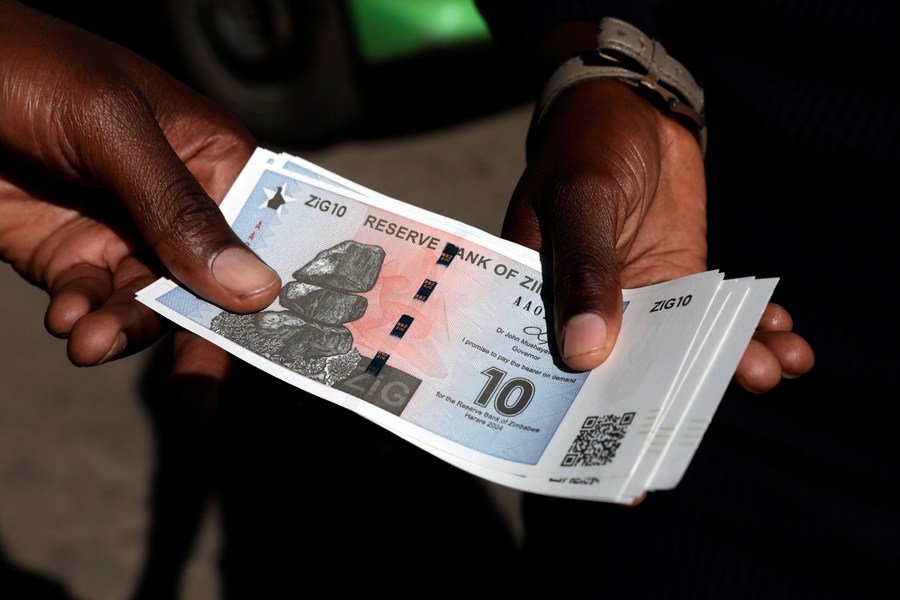
People exchange new currency Zimbabwe Gold banknotes outside a bank in Harare on 30 April 2024. Picture credit: Shaun Jusa/Xinhua.
The Zanu PF government can issue threats daily but — as we witnessed during the crazy days of hyperinflation — a 21st century economy cannot be governed by fiat. Confidence is the currency of economic prosperity. Zimbabwe is deficient in that all-important attribute. The sooner the government stops tinkering with mere symptoms and addresses the real malady, the better for national economic survival.
Inequality gap widens
Inequality has worsened, with the gap between the haves and the have-nots widening to dangerous levels. As former Finance minister Tendai Biti has correctly observed, the cartelisation of the economy is now posing an existential threat to the very survival of the republic.
Millions of citizens are living in extreme poverty, surviving on a pittance. This tragic state of affairs is happening in a country where corruption-induced economic hardships have spiralled out of control, creating filthy-rich oligarchs, tenderpreneurs and cartels.
Only a few politically connected individuals and their privileged cronies are enjoying the fat of the land while the overwhelming majority is wallowing in deprivation. It stinks to high heaven.
You do not have to be a forensic auditor to realise that political elites and their surrogates have captured the Zimbabwean state. As a direct consequence, the economy is serving the narrow interests of those who exploit their proximity to power to the exclusion of the masses.
It is tragic that Zimbabwe, 44 years after Independence, is now a fully fledged authoritarian kleptocracy. Instead of building an inclusive economy that gives every citizen a fair opportunity at attaining prosperity, Zanu PF has presided over an extractive mafia-like polity that serves the interests of political elites and their pampered cronies.
The ordinary citizen’s existence has become a never-ending struggle against the man-made calamities directly caused by bad governance.
Poverty terrorises the masses
Whether the government acknowledges it or not, there are frightening storm clouds hovering above this country like the proverbial sword of Damocles. In those raging clouds are shattered livelihoods, empty wallets, grumbling stomachs and broken dreams. In short, poverty is terrorising the masses.
Chronic high inflation is one thing; the sense of hopelessness created by clueless leaders is quite another. Citizens are living from hand to mouth and there is utterly no indication when this waking nightmare will come to an end. The local currency itself is contaminated, which explains why government workers are endlessly demanding US dollar wages.
Poverty has taken root. In this miasma of economic turmoil, Mnangagwa and his Finance minister have found it necessary to increase taxes — as if they think Zimbabwe can somehow magically tax itself into prosperity.
Zero accountability
Government accounts are a crime scene. For years, some parastatals have simply chosen not to submit their financial accounts to the Auditor-General for the constitutionally-stipulated scrutiny.
But that nagging worry pales into insignificance when you factor in the latest elephant in the room: Mnangagwa’s controversial creation of the Mutapa Investment Fund (MIF).
On 19 September 2023, he controversially promulgated Statutory Instrument 156 of 2023, which changed the name of the Sovereign Wealth Fund of Zimbabwe to MIF. No official reasons have been given for the renaming of the sovereign fund. At the stroke of a pen, the MIF has grabbed ownership of parastatal assets valued at US$16 billion, as at October 2024. What is more, the government has promulgated a statutory instrument exempting MIF from the Public Procurement and Disposal of Public Assets Act, a piece of legislation that would ordinarily require parastatals to comply with public procurement law. This is a red flag. The country’s proverbial “gravy train” is the sum total of murky public procurement tenders.
The Public Entities Corporate Governance Act makes it clear that parastatals and other public entities must submit their financial accounts for audit. This is meant for accountability, with the core objective being to ensure that public funds are managed in an efficient, effective and responsible manner that improves the quality of life of citizens.
Good financial management boosts public confidence and trust in government. The obverse is true: bad governance promotes corruption, inefficiency, incompetence and socio-economic decline. Parliament, which ought to play an oversight role, is sleeping on the job. In fact, some commentators have correctly argued that the legislature — as currently configured — has been reduced to a rubber stamp that facilitates looting.
The government has a constitutional responsibility to uphold good public financial management. It is part of the annual budget cycle; when you erase this important function, the country degenerates into a free-for-all banana republic where taxpayer funds are plundered and wasted with impunity.
Desperate for new path
What Zimbabwe urgently needs is a public-focused socio-economic order anchored on constitutional democracy. Rebuilding public trust in politics will take a herculean effort. People are not only seeing the rot every day but also suffering the consequences through lived experiences.
The threat posed by systematic corruption and state capture goes beyond President Mnangagwa as a politician. Although it has been amplified by his glaring leadership deficiencies, it is also the logical outcome of Zanu PF’s decline as a serious political organisation.
The party of Herbert Wiltshire Pfumaindini Chitepo and Eddison Jonasi Mudadirwa Zvobgo has regressed from a glorious liberation movement to a refuge of latter-day scoundrels defined by corruption, economic failure and national vandalism.
Today, there is no big defining idea at the heart of a party that has been reduced to an empty shell which only survives on account of brute force, intimidation, election rigging and fear.
The end result is a country that is now sharply divided between the impoverished majority and the self-serving elites. Mnangagwa and his clueless minions have squandered an opportunity to address corruption-induced poverty. It would be the height of futility to expect miracles from this lot in 2025.
